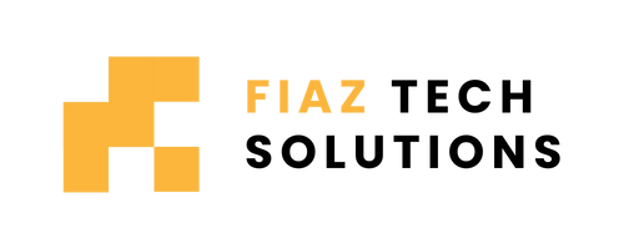An Edmonton Consultant's Guide to Choosing the Right Software (Without Vendor Bias)
Tired of aggressive software sales pitches? This Edmonton consultant's guide helps SMEs objectively choose the right software. Learn a framework for independent tech advice and smart SME software selection, ensuring your investment truly fits your needs.
Fiaz Mohammed
2/5/20254 min read


For many Edmonton Small and Medium-sized Enterprises (SMEs), the quest for the right software can feel like navigating a minefield. You're bombarded with dazzling sales pitches, complex feature lists, and the ever-present fear of making a costly mistake. The pressure is immense – choose wisely, and technology can propel your business forward; choose poorly, and you're left with an expensive, underutilized tool and a frustrated team.
The challenge is often compounded by advice that isn't entirely impartial. Many software vendors are, understandably, focused on selling their product. Some consultants might have preferred partnerships or incentives that subtly (or not so subtly) steer you in a particular direction. As an independent technology consultant based right here in Edmonton, I've seen the fallout from such situations too many times. I believe there’s a better way – a path to objective software selection that puts your business needs squarely at the forefront.
This guide is designed to provide Edmonton SMEs like yours with a practical framework for evaluating and choosing SME software effectively, free from external biases, ensuring your technology investments truly serve your strategic goals.
Why Objectivity is Non-Negotiable in Software Selection
Before we dive into the "how," let's address the "why." When software advice comes with strings attached – be it vendor kickbacks or a consultant’s pre-existing relationship with a particular solution – your business isn't getting the full picture. You might be pushed towards a solution that’s a close-enough fit but not the best fit, or one that’s overly complex and expensive for your actual requirements.
The cost of such a misstep isn't just financial, though that can be significant. It includes:
Wasted time on implementation and training.
Lost productivity as your team struggles with ill-suited tools.
Missed opportunities because the software doesn't fully support your objectives.
Employee frustration and low adoption rates.
My philosophy, and the one I advocate for all my clients, is built on independence and objectivity. My goal is to help you find the solution that genuinely benefits your organization, period.
A Framework for Objective Software Selection: Your Edmonton SME Checklist
So, how can you cut through the noise and make an informed, unbiased decision? Here's a practical framework:
Define Your Needs Thoroughly (Before You Look at Any Software!):
This is the absolute cornerstone of objective selection. Don't start by Browse software features. Start by deeply understanding and documenting your own business processes, pain points, and specific requirements. What problems are you trying to solve? What outcomes do you need? This involves in-depth interviews and analysis. This detailed requirements list becomes your primary evaluation tool.
Involve Your Future End-Users Early and Often:
The people who will use the software daily have invaluable insights. Engage them in the requirements gathering process. Understand their current workflows and what they need to make their jobs easier and more efficient. Their buy-in is critical for successful adoption.
Prioritize "Must-Have" vs. "Nice-to-Have" Functionality:
Not all features are created equal. Distinguish between core functionalities essential to your operations and the "bells and whistles" that might sound impressive but offer little practical value to your business. Focus your evaluation on how well solutions meet your must-haves.
Assess True Scalability for Your Growth:
Your Edmonton business is dynamic. Will the software scale with your predicted growth in terms of users, data volume, and functionality? Avoid solutions that will box you in or require a costly overhaul in a year or two.
Scrutinize Integration Capabilities:
How well will the new software integrate with your existing systems (accounting, CRM, inventory, etc.)? Seamless integration prevents data silos and manual workarounds. Ask for specifics and proof of successful integrations.
Evaluate Usability and the Learning Curve:
A powerful tool is useless if your team finds it too complex to learn and use effectively. Request demos focused on your specific use cases. Consider pilot programs or trial periods if possible. How intuitive is the interface? What training resources are provided?
Look Beyond the Sticker Price (Total Cost of Ownership - TCO):
The initial purchase or subscription cost is just one part of the equation. Factor in potential costs for implementation, data migration, customization, training, ongoing support, and future upgrades. An independent advisor can help you uncover these often-hidden expenses.
Investigate Vendor Support, Reputation, and Viability:
What kind of customer support does the vendor offer (response times, channels, expertise)? What is their reputation in the market, especially among businesses similar to yours in Edmonton or Canada? Is the vendor financially stable and likely to be around to support and update the product long-term?
Demand Transparency and Ask the Tough Questions:
Don't be afraid to dig deep. Ask vendors about the limitations of their software, their product roadmap, and what happens if certain promised features don't materialize. An objective evaluation requires full transparency.
Focus on Strategic Value and ROI:
Ultimately, how will this software contribute to your overarching business goals? Will it improve efficiency, reduce costs, enhance customer service, or enable new revenue streams? Tie your decision back to tangible benefits and a clear software investment ROI.
The Advantage of Independent Tech Advice in Edmonton
Navigating this checklist thoroughly requires time, expertise, and an unbiased perspective. This is where partnering with an independent tech advice Edmonton specialist like myself can make a significant difference. My role is to:
Facilitate the crucial upfront planning and detailed requirements gathering.
Leverage my experience across industries like Manufacturing, Distribution, Retail, E-commerce, and Nonprofits to ask the right questions.
Conduct objective research and due diligence on potential solutions, free from any vendor affiliations.
Help you compare apples to apples, focusing on your unique needs.
Ensure the needs of both management and end-users are met.
My commitment is to ensure you avoid costly mistakes and select technology that genuinely empowers your team and drives your business forward.
Making the Right Choice for Your Edmonton Business
Choosing new software is a strategic decision that can have a lasting impact on your SME. By adopting an objective, needs-driven approach, you can cut through the sales hype and select solutions that deliver real, measurable value. Don't let vendor bias dictate your technology future. Empower yourself with a clear process and, if needed, truly independent guidance.
If you're an Edmonton SME facing a critical software decision and want to ensure you're making the best possible choice for your unique needs, I'm here to offer that objective perspective.
Book a free consultation with me to get started
Don't let outdated systems hold your team back any longer. Embrace a brighter future for your agency with technology designed for compassion, efficiency, and impact. Schedule your free demo today and experience the Transform difference.


Based in Edmonton, AB
